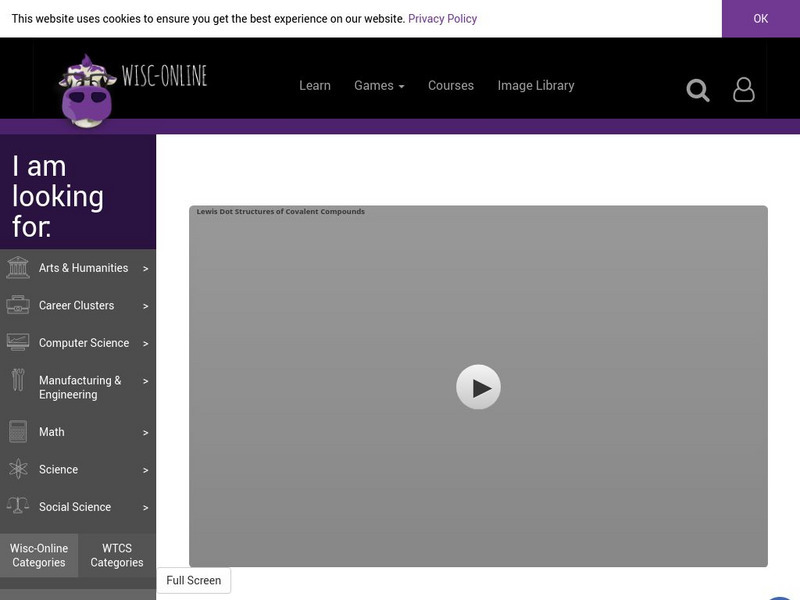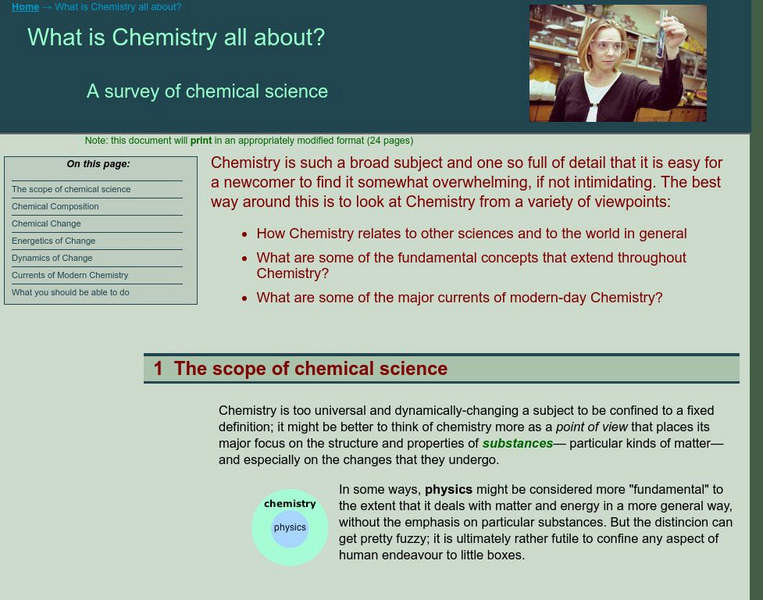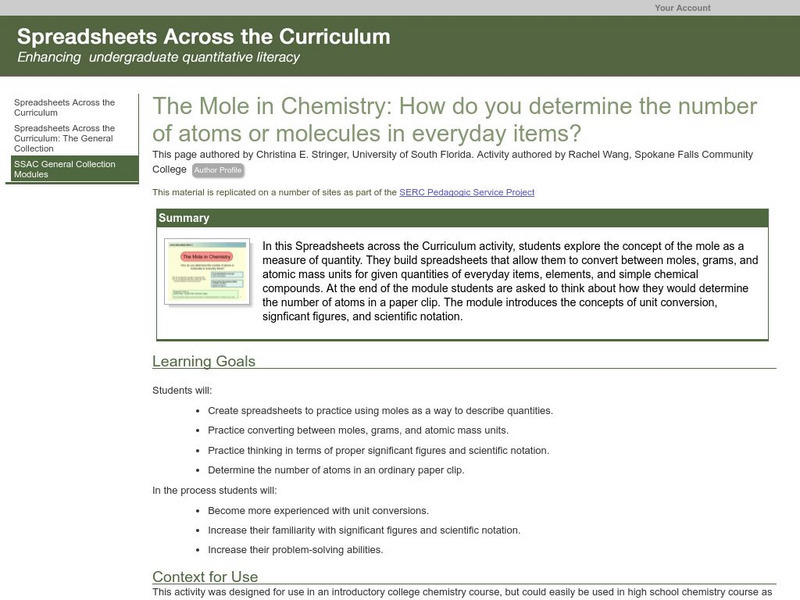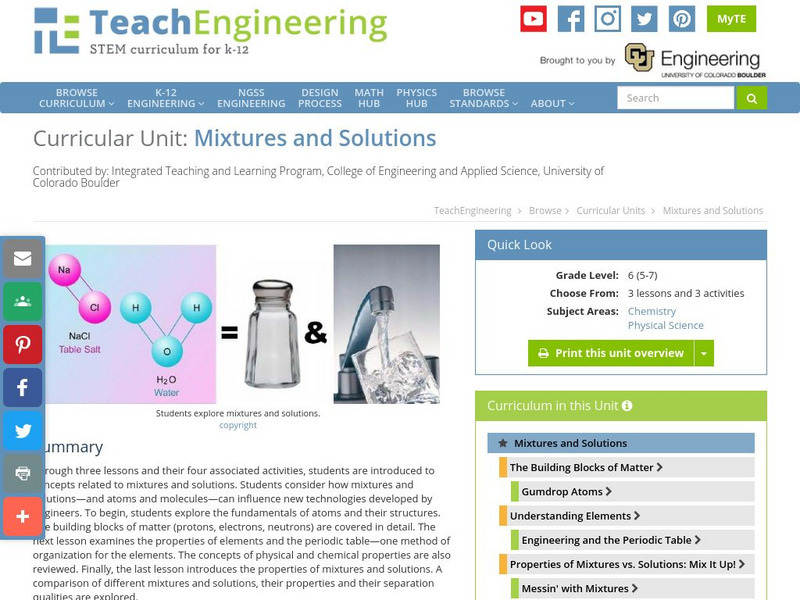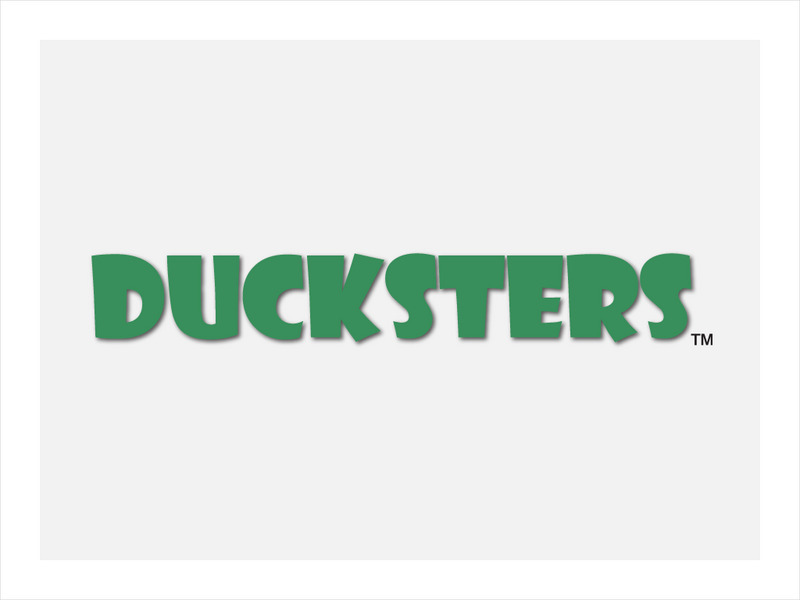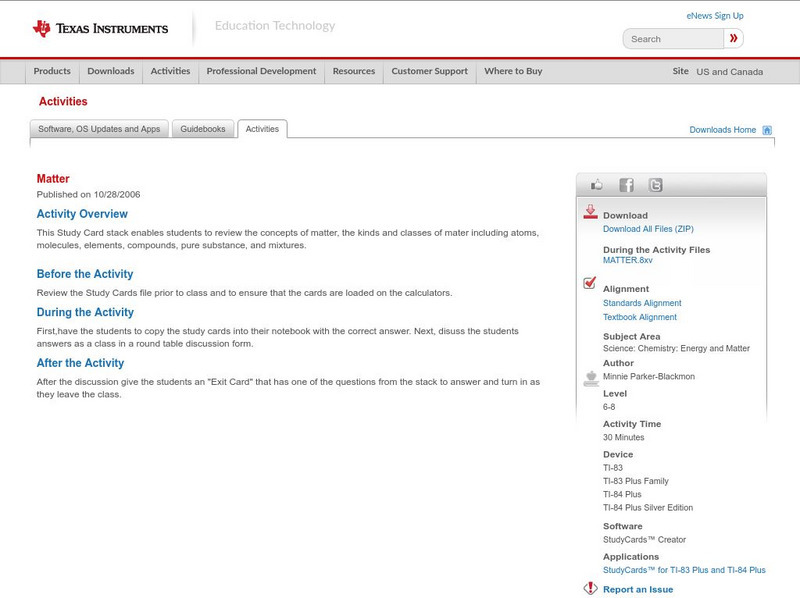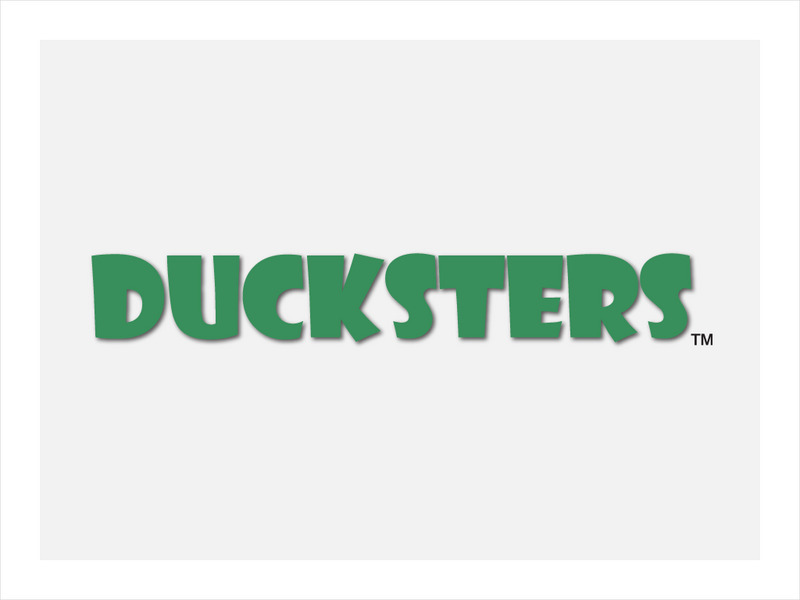Wisc-Online
Wisc Online: Lewis Dot Structures of Covalent Compounds
Short slide show provides basic information about drawing Lewis dot structures for covalent compounds. Starts with anatomy of the atom, and then shows the relationship between atomic particles and the Periodic Table of Elements. Offers...
OpenStax
Open Stax: Organic Compounds Essential to Human Functioning
Learn here about organic compounds, groups of carbon atoms covalently bonded to hydrogen, usually oxygen, and often other elements as well, and how they are essential to human functioning.
CPALMS
Florida State University Cpalms: Florida Students: Atoms Make Up Everything
Learn how atoms are the building blocks of all living and nonliving things.
CK-12 Foundation
Ck 12: Life Science: 2.1 Elements and Compounds
Learn how basic elements form molecules to support life.
Simon Fraser University
Chem1 Virtual Textbook: What Is Chemistry All About?
Covering a range of eight topics related to chemistry, this resource provides a wealth of information complete with pictures, charts, graphs, and examples. Includes information on elements, compounds, atoms, molecules, structures,...
Science Education Resource Center at Carleton College
Serc: The Mole in Chemistry: Determining the Number of Atoms in Everyday Items
Students explore the concept of the mole as a measure of quantity. They build spreadsheets that allow them to convert between moles, grams, and atomic mass units for given quantities of everyday items, elements, and simple chemical...
Ducksters
Ducksters: Chemistry for Kids: Naming Chemical Compounds
Learn about naming chemical compounds in chemistry including conventions, the order of the elements, metals, non-metals, acids, and examples on naming on this site.
TeachEngineering
Teach Engineering: Mixtures and Solutions
This unit covers introductory concepts of mixtures and solutions. Students think about how mixtures and solutions, and atoms and molecules can influence new technologies developed by engineers. The first lesson explores the fundamentals...
TeachEngineering
Teach Engineering: Engineering and the Periodic Table
Students learn about the periodic table and how pervasive the elements are in our daily lives. After reviewing the table organization and facts about the first 20 elements, they play an element identification game. They also learn that...
Museum of Science
The Atom's Family: Mighty Molecules
In this activity, students construct models of molecules using marshmallows and gum drops.
Simon Fraser University
Chem1 Virtual Textbook: Chemical Composition
Chemical composition is a section of a larger overview on Chemistry, covering a variety of aspects. This section focuses on elements, atoms, compounds, and structure. Examples, formulas, and pictures are provided.
ClassFlow
Class Flow: What Is Matter?
[Free Registration/Login Required] Discover the composition of matter and the relationship between matter, atoms, and elements. Students will learn the differences between elements and compounds, and how molecules are formed. Chemical...
Ducksters
Ducksters: Chemistry for Kids: Organic Chemistry
Kids learn about organic chemistry including the importance of carbon, organic molecules, compounds, hydrocarbons, synthesis, and functional groups.
Texas Instruments
Texas Instruments: Matter
This Study Card stack enables students to review the concepts of matter, the kinds and classes of mater including atoms, molecules, elements, compounds, pure substance, and mixtures.
CK-12 Foundation
Ck 12: Chemistry Simulation: Air Matters
[Free Registration/Login Required] Explore the composition of air and learn about the different atoms and molecules that we breathe every day.
CK-12 Foundation
Ck 12: Fifth Grade Science: Physical Science: Types of Matter
[Free Registration/Login may be required to access all resource tools.] Discusses elements, atoms, compounds, molecules, and crystals. Looks at mixture and different types of them.
Other
Science Alive: Synthetic vs. Natural: What's the Difference?
Through this reading, young scholars will learn that a substance's properties arise from its molecular structure, not from how it's made (i.e., synthesized by people or found in nature). There is no fundamental difference between natural...
Other
Science Alive: What Is Organic Chemistry?
This reading/lesson plan introduces young scholars to the concept of organic chemistry.
University Corporation for Atmospheric Research
Ucar: Biogeochemical Cycles
The ways in which an element or compound such as water moves between its various living and nonliving forms and locations in the biosphere is called a biogeochemical cycle. All of the atoms that are building blocks of living things are a...
PBS
Pbs Learning Media: Meaning of Matter
Matter is all around us, so it's a good idea to know what it is, and why it matters. Learn about matter, its categories, and its subcategories with this interactive lesson.
Sophia Learning
Sophia: Characteristics of Matter
Find out the basic characteristics and main properties of all matter.
Ducksters
Ducksters: Kids Science: Molecules
Kid's learn about the science of the molecules. Tiny chemistry and compounds of atoms and elements make up all matter.
ClassFlow
Class Flow: Comparing and Contrasting Matter
[Free Registration/Login Required] This flipchart is a guided activity to help students compare different types of matter: atoms and molecules, elements and compounds, mixtures and solutions. It corresponds to Virginia science SOL 5.4.
Other
Science Alive: The Many Faces of Steroids
This reading is an introduction to the great variety of steroids and their many different uses.


